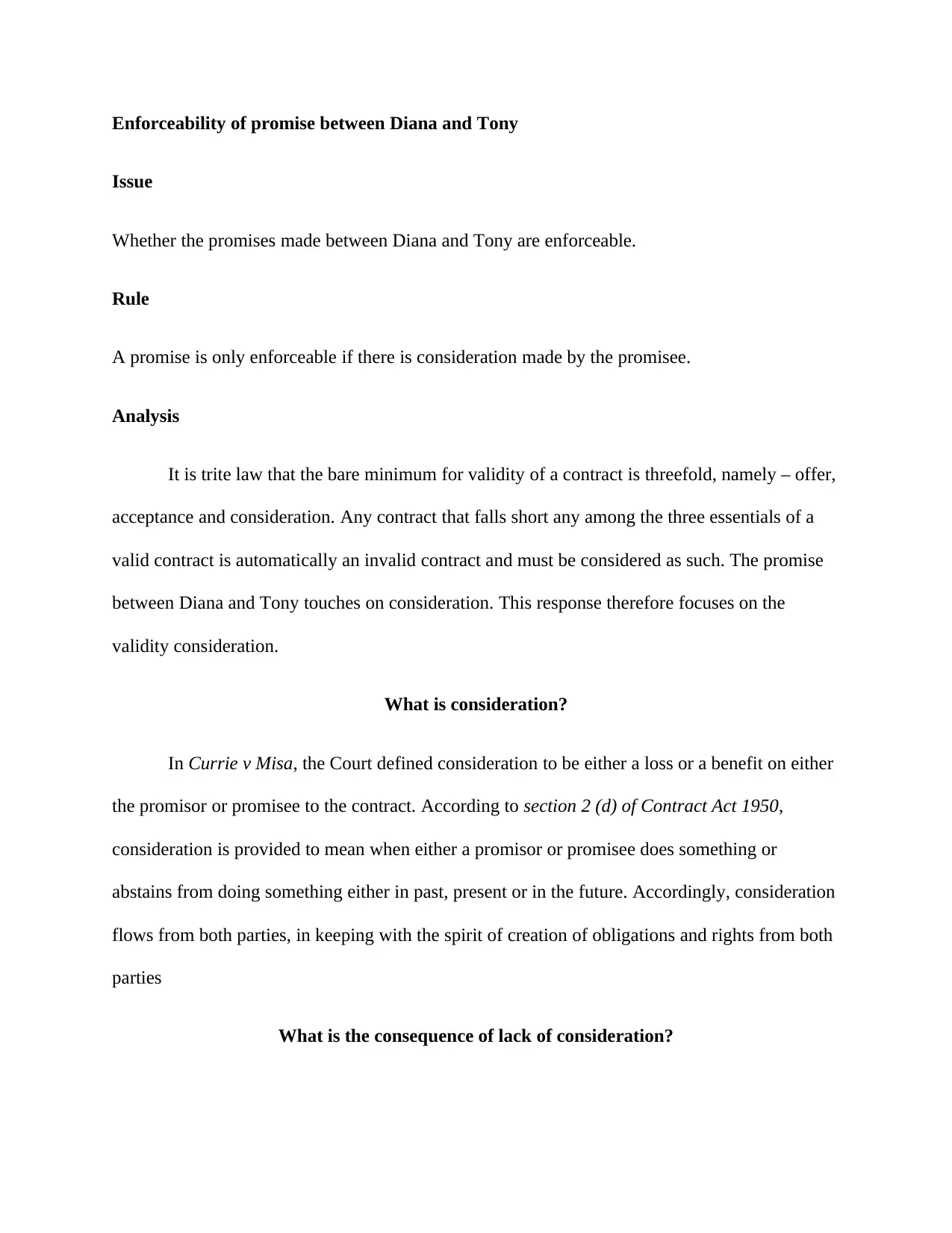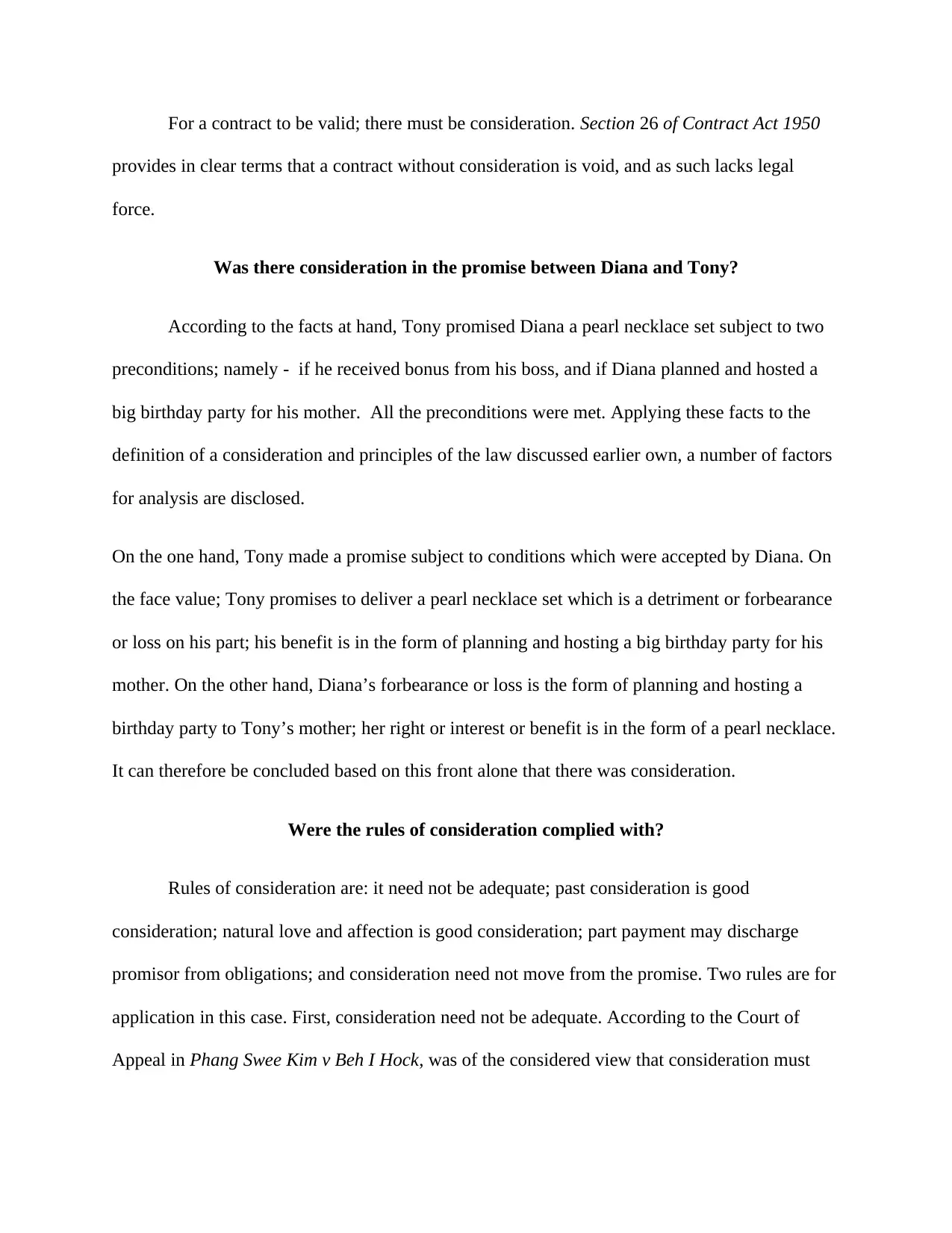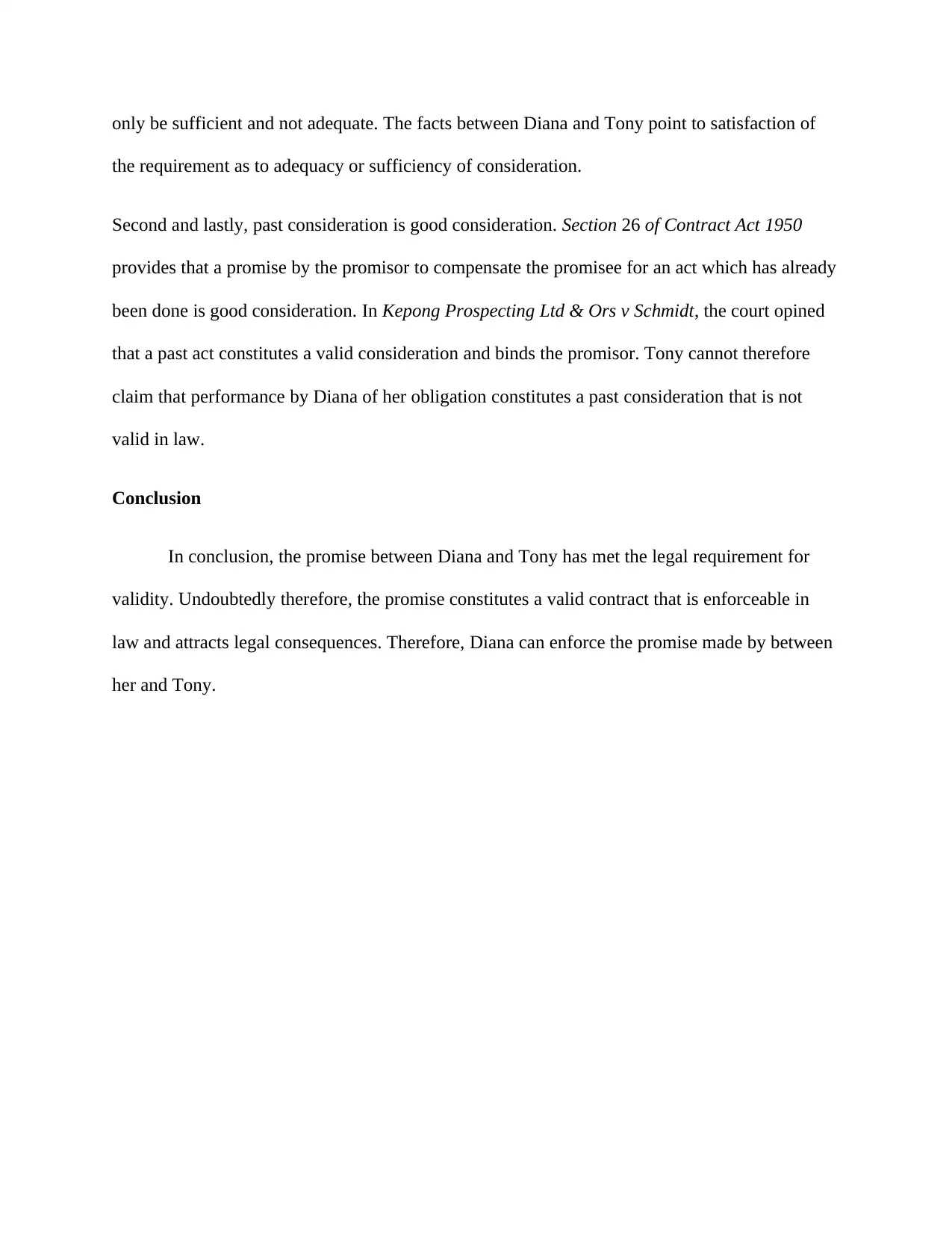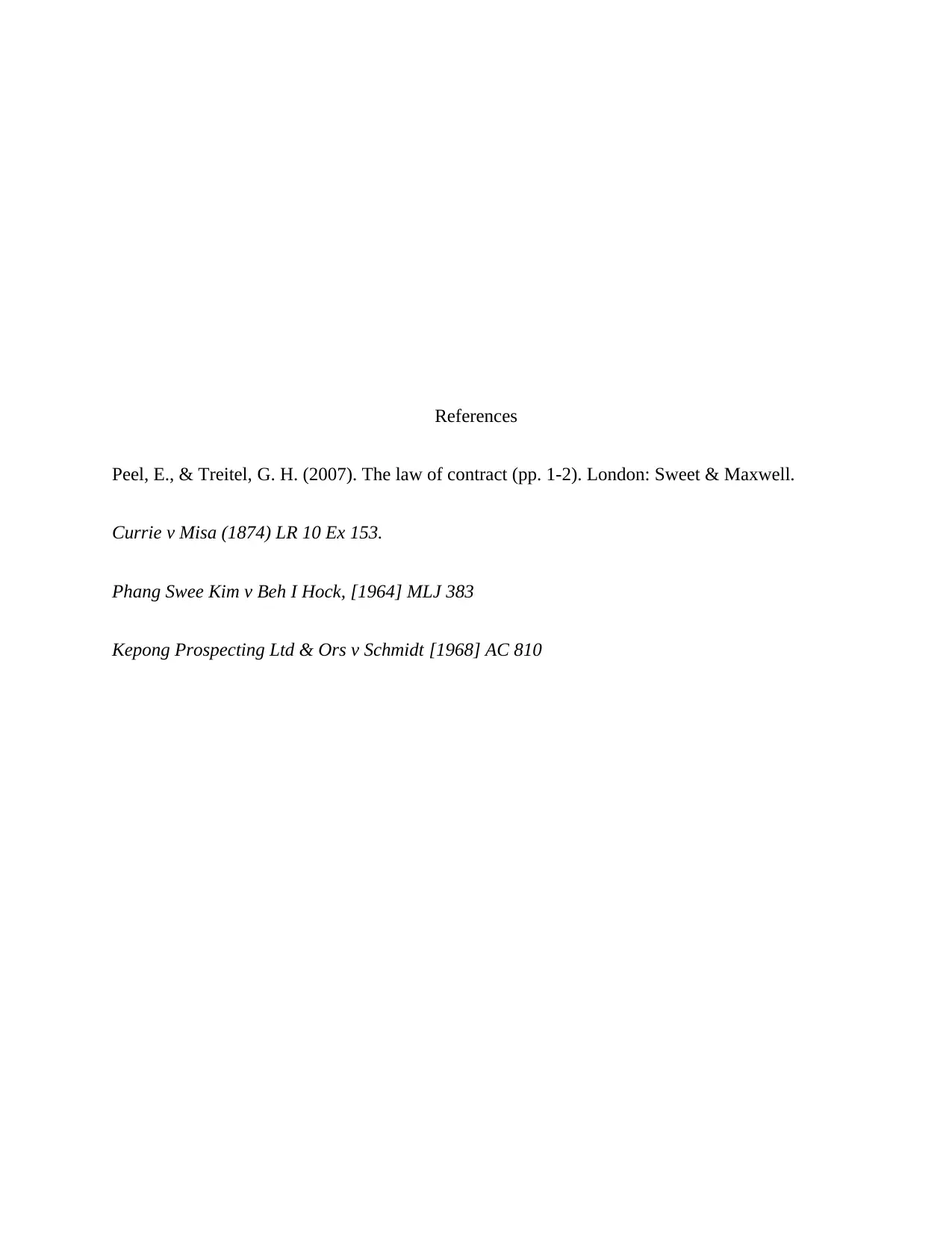Promise Enforceability Analysis: Contract Law - INTI College Sabah
VerifiedAdded on 2022/08/12
|4
|769
|22
Essay
AI Summary
This essay examines the enforceability of a promise between Diana and Tony, focusing on whether the promises are legally binding based on the principle of consideration in contract law. It begins by defining consideration according to Currie v Misa and Section 2(d) of the Contract Act 1950, emphasizing that a valid contract requires offer, acceptance, and consideration. The analysis explores whether Tony's promise of a pearl necklace to Diana, contingent on him receiving a bonus and Diana hosting a birthday party for his mother, constitutes valid consideration. The essay applies rules of consideration, such as the need for sufficiency but not adequacy and the validity of past consideration, referencing cases like Phang Swee Kim v Beh I Hock and Kepong Prospecting Ltd & Ors v Schmidt. The conclusion asserts that the promise meets the legal requirements for validity, making it an enforceable contract that Diana can legally pursue.
1 out of 4











![[object Object]](/_next/static/media/star-bottom.7253800d.svg)